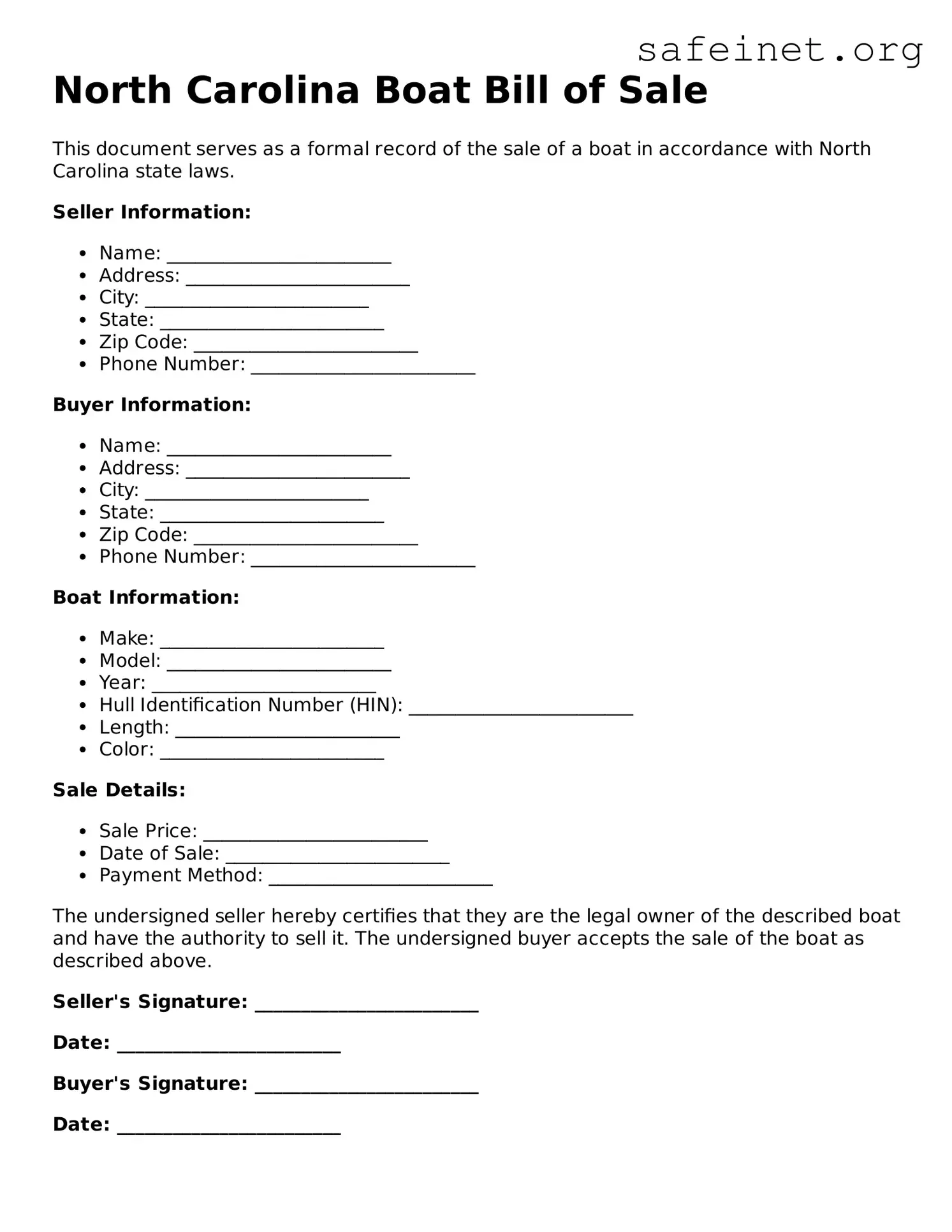What is a Boat Bill of Sale form in North Carolina?
A Boat Bill of Sale is a legal document that records the sale of a boat in North Carolina. This form serves as proof of the transaction and includes crucial details about the buyer, the seller, and the boat itself. It outlines the sale price, date of transfer, and any specific conditions or agreements made between the parties involved. This document is especially important for establishing ownership and can be useful when registering the boat or if there are any disputes in the future.
Why is a Boat Bill of Sale necessary?
Having a Boat Bill of Sale is essential for several reasons. First, it protects both the buyer and the seller by providing legal evidence of the transfer of ownership. In North Carolina, if the buyer wishes to register the boat, they may need to present this form. Furthermore, in the event of any legal issues or disputes regarding ownership or payment, a Bill of Sale can serve as an important piece of documentation to clarify the terms of the sale.
What information should be included in the North Carolina Boat Bill of Sale?
A complete Boat Bill of Sale in North Carolina should include the following key information: the full names and addresses of both the buyer and the seller, the description of the boat (including make, model, year, hull identification number, and color), the sale price, the date of the transaction, and any additional terms or conditions that were agreed upon by both parties. Both parties should sign the document to indicate their acceptance and understanding of the transaction.
Is a Boat Bill of Sale required in North Carolina?
While North Carolina does not legally require a Bill of Sale for every boat transaction, having one is highly recommended. It can safeguard the interests of both buyers and sellers. In certain cases, such as when registering a boat or applying for a title, a Bill of Sale may be necessary. For the smooth transfer of ownership and to avoid any potential disputes, it is prudent to have this document prepared and signed during the sale.
Can a Boat Bill of Sale be completed electronically in North Carolina?
Yes, North Carolina allows for electronic completion of a Boat Bill of Sale. However, both parties must still sign the document, and it is advisable to retain a copy for personal records. Some individuals prefer hard copies to ensure that all relevant signatures are physically present, but electronic versions are legally valid as long as they fulfill the required content and are authenticated by both parties.
What should be done with the Boat Bill of Sale after the sale?
After the sale is completed, both the buyer and seller should keep a copy of the Boat Bill of Sale for their records. The buyer may use it when registering the boat with the North Carolina Wildlife Resources Commission. It is also wise for the seller to retain a copy, as it can serve as proof of sale and release them from liability for the boat once it changes ownership.
